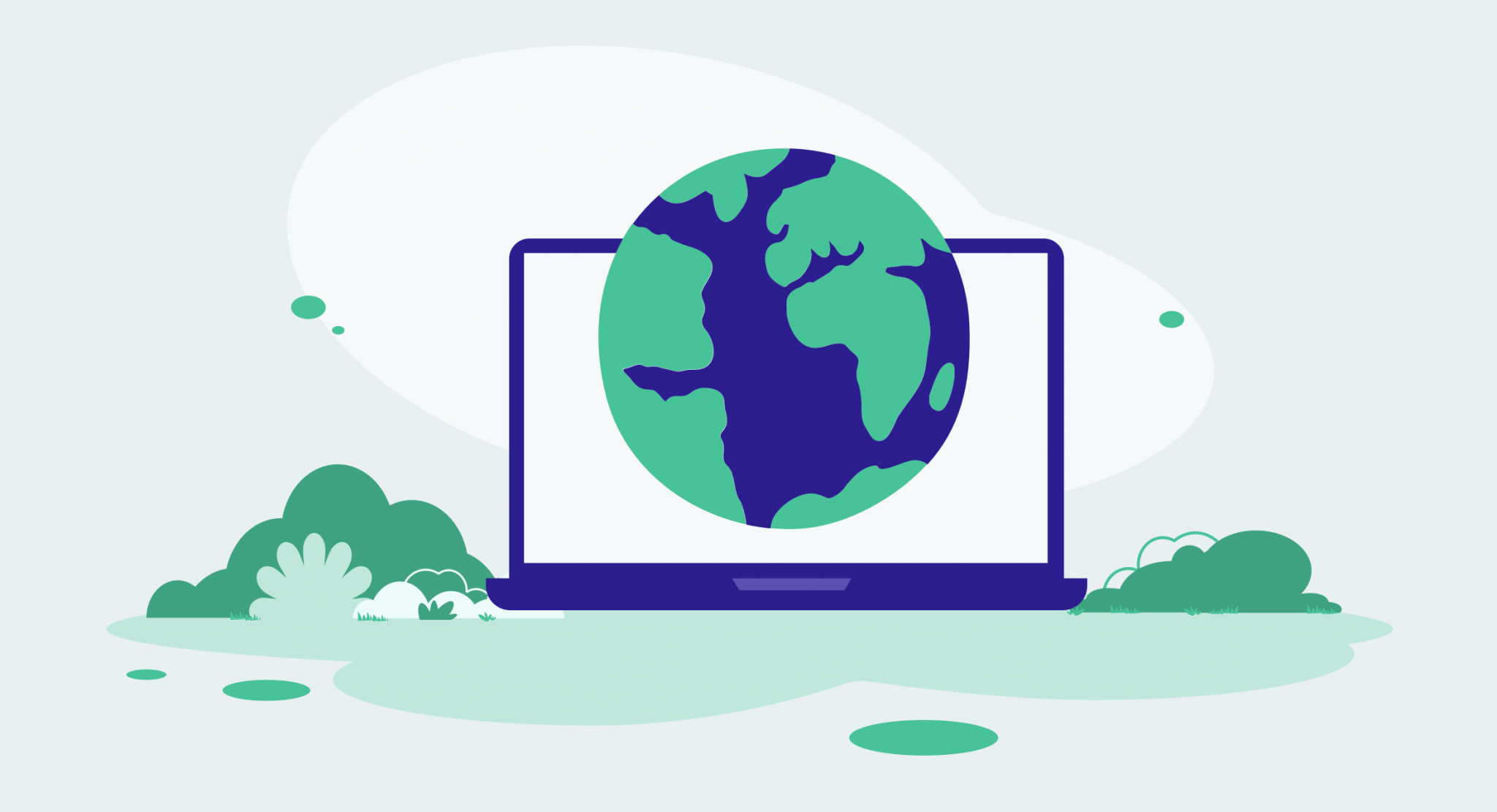Add Another Type of Pollution to the List: Digital

Pollution, as defined in the Merriam-Webster online dictionary, is “the action of polluting especially by environmental contamination with man-made waste” and has been a constant in the world ever since humans began living in groups. Anthropologists have found human waste among the ruins of ancient settlements. The word pollution took over from the term industrial waste in the late 19th century, and the different types of pollution were identified throughout the 20th century with the 3 major types: air, land, and water, joined by noise, light, radioactive, thermal, and plastic pollution. Now in the 21st century, we are beginning to recognize that advances in technology have brought about a new type of pollution: digital pollution (sometimes also called information pollution or data pollution or e-waste).
The literature describing digital pollution and various ways to measure its impacts is quite fragmented in type of publication and currency/depth of verified data from blog posts to white papers and articles in magazines/newspapers to those in peer-reviewed books and journals. Presented here is a cross-section of such resources to set you on the path of assessing whether now is the time for your organization to be concerned with the impact of its digital pollution. If interested, I suggest you contact Cambridge University Press. In 2021, the Press, along with Netflix and BT, began working with DIMPACT. DIMPACT is a pioneering initiative launched in 2019 by Carnstone, media companies, and researchers at the University of Bristol to help map and manage carbon impacts of digital information (https://dimpact.org/news).
“Digital is physical. Digital is not green. Digital costs the Earth. Every time I download an email I contribute to global warming. Every time I tweet, do a search, check a webpage, I create pollution. Digital is physical. Those data centers are not in the Cloud. They’re on land in massive physical buildings packed full of computers hungry for energy. It seems invisible. It seems cheap and free. It’s not. Digital costs the Earth.
One of the most difficult challenges with digital is to truly grasp what it is, its form, its impact on the physical world. I want to help give you a feel for digital. I’m going to analyze how many trees would need to be planted to offset a particular digital activity. For example:
- 1.6 billion trees would have to be planted to offset the pollution caused by email spam.
- 1.5 billion trees would need to be planted to deal with annual e-commerce returns in the US alone.
- 231 million trees would need to be planted to deal with the pollution caused as a result of the data US citizens consumed in 2019.
- 16 million trees would need to be planted to offset the pollution caused by the estimated 1.9 trillion yearly searches on Google.” —Excerpt from World Wide Waste by Gerry McGovern
Facing up to digital pollution
Martin L. Research Information. July 28, 2021.
https://www.researchinformation.info/analysis-opinion/facing-digital-pollution
Carbon impact of video streaming
Carbon Trust white paper. 2021.
https://prod-drupal-files.storage.googleapis.com/documents/resource/public/Carbon-impact-of-video-streaming.pdf
The environmental impact of digital publishing
Monell ME, Carbonell JP. CCCBLAB. May 11, 2021.
https://lab.cccb.org/en/the-environmental-impact-of-digital-publishing/
Almost 10% of what we read nowadays is in digital format, which is why we are looking into the digital impact of this area.
9 ways to reduce your digital pollution
Beasse S. Plank. April 22, 2021.
https://plankdesign.com/en/stories/9-ways-to-reduce-your-digital-pollution/
Data pollution
Ben-Shahar O. J Legal Analysis. 2019;11:104–159.
https://doi.org/10.1093/jla/laz005
We finally know how bad for the environment your Netflix habit is
Bedingfield W. Wired. March 15, 2021.
https://www.wired.co.uk/article/netflix-carbon-footprint
Streaming platforms finally have a tool to evaluate the size of their carbon footprint. Now they need to take action and go green.
The world is choking on digital pollution
Estrin J, Gill S. Washington Monthly. Jan/Feb/March 2019.
https://washingtonmonthly.com/magazine/january-february-march-2019/the-world-is-choking-on-digital-pollution/
Society figured out how to manage the waste produced by the Industrial Revolution. We must do the same thing with the Internet today.
IoT and the new digital pollution
Curry S. Forbes. February 25, 2019.
https://www.forbes.com/sites/samcurry/2019/02/25/iot-and-the-new-digital-pollution/?sh=4f5a45c77fd4
How the world is dealing with its e-waste issue?
Demma B. Solar Impulse Foundation. May 14, 2019.
https://solarimpulse.com/news/how-the-world-is-dealing-with-its-e-waste-issue
The solution to digital pollution is a global ‘Information Consensus’
Venkatesh HR. Medium.com. March 17, 2019.
Think of it as Universal Declaration of Human Rights…for information.
https://medium.com/jsk-class-of-2019/the-solution-to-digital-pollution-is-a-global-information-consensus-a37db7a054b1
Causes of digital pollution
Digital for the Planet. July 9, 2018.
https://medium.com/@digifortheplane/causes-of-digital-pollution-c0054d555377
Powering the digital: from energy ecologies to electronic environmentalism
Gabrys J. 2014.
http://www.jennifergabrys.net/wp-content/uploads/2014/09/Gabrys_ElecEnviron_MediaEcol.pdf
The alarming rise of ‘digital and content pollution’
Wilms T. Forbes. March 26, 2013.
https://www.forbes.com/sites/sap/2013/03/26/the-alarming-rise-of-digital-and-content-pollution/?sh=eb528481fb4c
Power, pollution and the Internet
Glanz J. The New York Times. September 22, 2012.
https://www.sebis.com/main/en/publications/Power%2C+Pollution+and+the+Internet.pdf
Barbara Meyers Ford has retired after a 45-year career in scholarly communications working with companies, associations/societies, and university presses in the areas of publishing, and research. If interested in connecting, find her at www.linkedin.com/in/barbarameyersford and mention that you are a reader of Science Editor.
*A person who indulges in and desires information gathering and interpretation. The term was introduced in 2006 by neuroscientists Irving Biederman and Edward Vessel.
